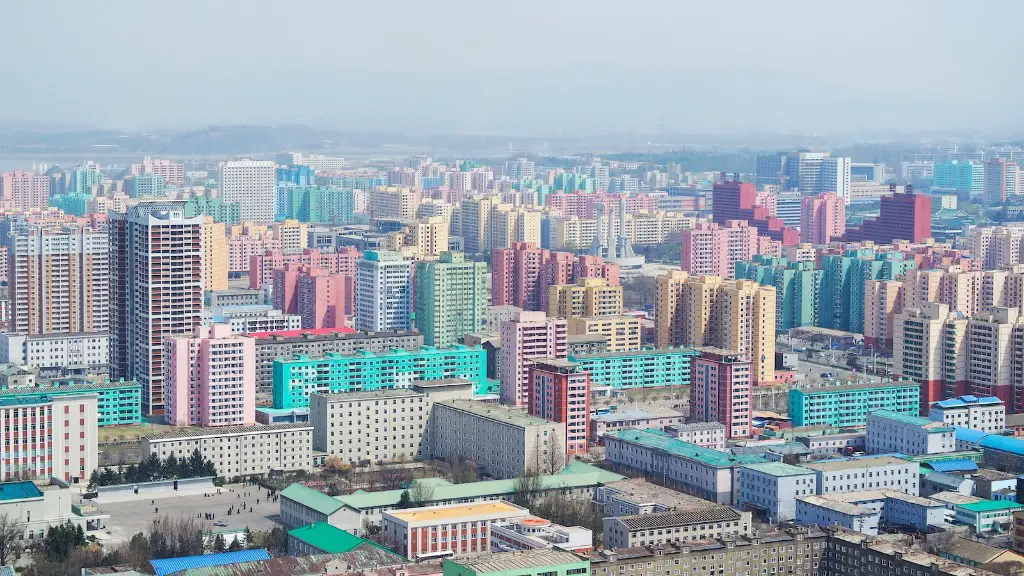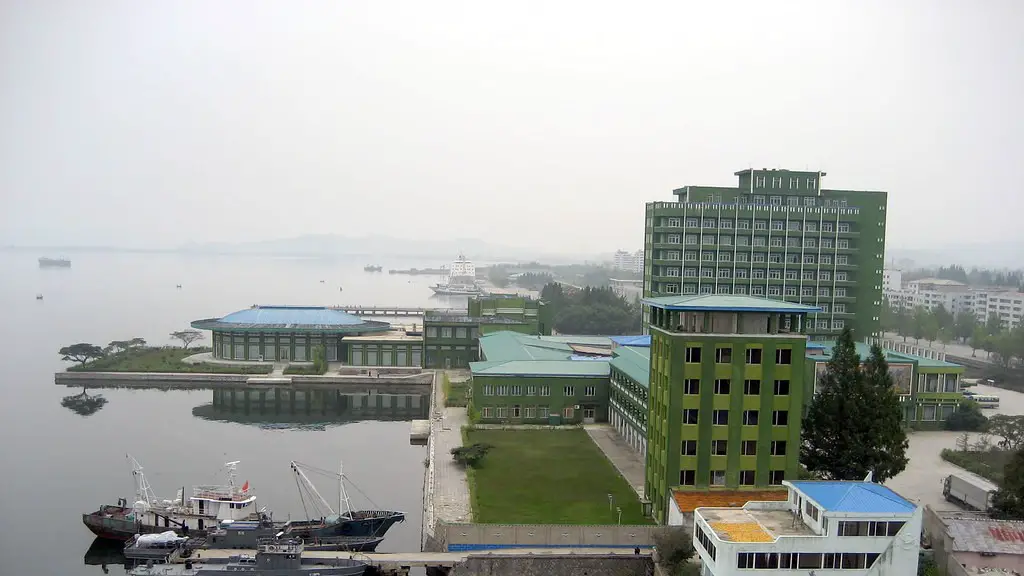Background
North and South Korea have a long history of political turmoil. Since the end of World War II, their two countries have been divided into two separate entities, resulting in two distinct governments, languages,, and cultures. The Korean War (1950-53) ultimately ended with an armistice, resulting in the de-facto division of the peninsula, with North and South Korea staying in a state of cold war ever since.
The likelihood of North and South Korea uniting has been discussed for decades, but has seemingly remained out of reach. The combination of North Korea’s increasing nuclear arsenal, and South Korea’s attempt to maintain their strong economy and diplomatic alliances abroad, have prevented a potential reunification.
Recent Developments and Progress
The hopeful prospect of a unified Korea has begun to emerge in 2018. In April, a historic meeting took place between South Korean President Moon Jae-in and North Korean Supreme Leader Kim Jong Un, where they declared an end to the Korean War. In June 2018, a historic summit took place between US President Donald Trump and North Korean leader Kim Jong Un, in which they reaffirmed their commitment to “work toward complete denuclearization of the Korean Peninsula”.
Since then, there have been further positive steps in improving relations between the two Korean countries, leading to increased hope that full reunification could one day be within reach. In December 2018, South and North Korean defense chiefs held their first meeting in a decade and issued a joint declaration.
Expert Viewpoints
Experts seem to agree that a united Korea is within reach, but much progress still needs to be made from both sides in order to achieve this. Ghee-sung Kim, an associate Professor at the Institute of International Relations at Yonsei University in Korea, says that full reunification “won’t happen overnight, but a step-by-step peaceful unification process is likely”.
Dr. Moon Chung-in, a special adviser to the South Korean President and a professor of Political Science at Yonsei University, explains that it is essential that different stakeholders must be seized in advancing the possibilities of such unification. “Reunification requires external, regional diplomatic offensive and political support,” said Dr. Moon.
Opinions of the Public
Opinions among the South Korean public are split. Some groups are cautiously optimistic that a unified Korea is an achievable goal, while others worry it could put the current economic, social, and political stability at risk.
A survey conducted in 2018 by Realmeter found that 54.2 percent of South Koreans believe that their country and North Korea will become one within the next decade, with 33.8 percent feeling the opposite.
Analysis and Insights
Whilst the idea of a unified Korea is exciting, there are a variety of challenges that need to be dealt with for full reunification to be achieved. Issues such as human rights, economic inequality and the US-led sanctions on North Korea all need to be addressed.
North Korea’s nuclear programme has proved to be the main stumbling block to achieving a successful unification. The complete denuclearisation of the Korean Peninsula needs to be achieved before any cohesive ties can be put in place between North and South Korea.
Furthermore, the artificial division of the Korean Peninsula has resulted in two distinct cultures and identities, over time making it increasingly difficult to accept reunification as a workable solution. It is important that both parties understand that unification should not mean stripping either nation’s culture and heritage.
Power Dynamics and Role of the US
The role of the United States, as a superpower and a traditional ally of South Korea, is also a key factor in any possible unification. US President Donald Trump has declared himself a neutral negotiator between the two countries, but has also made it clear that any final agreement should be made by the two parties involved – North and South Korea.
There have been some reports that the US was pushing for the two countries to break down the long-standing tensions prior to the Trump-Kim meeting in June 2018. It is likely that the US will remain closely involved in the negotiations and push for similar progress to continue as the reunification process moves forward.
Economic Implications
Reunification between North and South Korea could have numerous economic implications. North Korea’s economy is much poorer and weaker than its southern neighbor, and many experts have suggested that reunification without the right support could have disastrous results.
Simultaneously, the combined economies of both Korean countries could be a great benefit to the entire region. The total gross domestic product (GDP) of North and South Korea combined is estimated to potentially double, thus creating a great potential for economic stability, growth, and development.
Foreign Policy Considerations
The reunification of North and South Korea could also have far-reaching implications for the region. As the two countries share a border, the unification could potentially lead to revisions of the existing borders with their economic and political implications.
Furthermore, there may also be heightened diplomacy with China and Japan, two other key players in the region. Japan is facing issues regarding economic support and repatriation of Korean ex-patriots from Japan as well as China’s involvement in economic support to North Korea. A new unified Korea would be faced with many issues do with international relations, which must be navigated carefully.
Effect of Domestic Landmarks
Within South Korea, many have noted that the implementation of unification could result in major changes to the existing social and political system. For instance, the current left-right divide could be drastically altered with an influx of North Koreans, who may have different political ideologies and revolutionary aspirations.
Consequently, policies and programs that protect the existing system or culture will likely be at risk of being replaced by new procedures adopted from North Koreans, who are expected to have different views and attitudes. The effects on the demographics of the area could also be significant, with a substantial number of Koreans, who were displaced due to the 1950-53 war, potentially returning home.
Law and Social Norms
The legal aspects associated with a unified Korea must also be considered. North and South Korea are currently operating under different legal systems which would need to be reconciled and harmonized if the two countries were to join together.
Meanwhile, the preservation of the unique culture of the Korean Peninsula must be taken into account. It is essential that the social norms between North and South do not suffer as a result of unification, and that Koreans are able to maintain their unique culture – both of Korean identity and their respective differences – as well as fostering a spirit of mutual understanding and acceptance.


